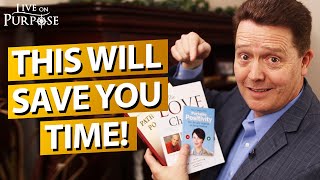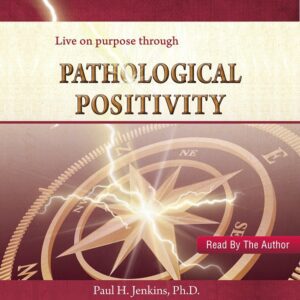I've now written three books with a few more coming, and I think I know a few things that could save you some time. These three books have taught me a lot about what you need to know in order to write a book or before you write it. The first thing to ask is, “Who is this for? Who is my audience?” That's important because the tone of this book will be dictated by who you think is going to be reading it. The obvious example: If you are writing a children's book, you are going to approach that very differently than if you are going to write a textbook for medical students. Those are pretty diverse audiences. Get clear on who is your audience and that will help you to shape not only your message but the way you deliver the content.
I asked who's your audience who's the book for, but let's be honest. If this book is for you, just own that. This is a totally legitimate reason. I know people who write books solely for themselves. They don't have any intention of sharing it with an audience beyond themselves or maybe their immediate family.
Family history books are a good example of that. Family history books can take a lot of work and they are intended for you and your immediate family. That's totally fine. You can see that you are going to approach that differently than if you have a broader audience. So, even if that audience is you or your immediate family, just get clear about that right up front.
The next step is to figure out, “What is my message? What is it that I'm trying to say?” When I wrote my first book, Pathological Positivity, it was basically a brain dump. I knew that there was a book in me. I had been telling myself for 10 years or more that I'm going to write a book. It was true every time I said it. I'm going to write a book. It's an undefined future event so I was right.
When I started writing the book, I just started brain dumping everything that was on my mind because all that has to be in my book, right? I thought of the book as the ultimate product of my brain. Now, my creative editor Thomas Cantrell (big shout out to you Thomas, you're so awesome) gave me a heads up to the fact that this brain dump is not my message. My message is somewhere in there and we were going to have to figure out what that message is. You need to know what your message is.
I remember one day when I was working with Thomas and we were trudging through all of this brain dump that I'd put out there. I said, “You know Thomas? Sometimes people call me pathologically positive, and I don't know if that is even a compliment.” He said, “Wait. Stop. What?” I said, “People sometimes say that I'm pathologically positive.” He said, “That's it. That is your message. In fact, that's the title of the book.” And that's where it came from. That became my core message. How to be positive no matter what. And when I got clear about that, it started to steer the way I was writing, the way we were editing.
About 146 pages or so of that brain dump got stuck into what Thomas and I call, “the basement.” It's just a file in my computer where all of that material that I brain dumped is still there when I need it for future books. Some of it is already slated for 2 of my upcoming books, but it is not in Pathologically Positive. I'm not going to burden you with that. That's not part of the core message of this particular book. So, you got to get clear and think about what is my core message. Don't worry about all of that stuff that you want to say, it is not part of your core message. That is why you can write multiple books. Let's get a little more practical.
Another thing you got to think about before you write your book is how am I going to use this? What is it in purpose? I've given you a little bit of heads-up to that with different examples. Like the family history book. What's the intended purpose of that? Well, it's to record your family history. And you want to share that with your family. People outside of your family probably not as interested unless you've got a really colorful family and some of you do. What is my intended purpose?
For me, the purpose was to teach principles that I found myself repeating over and over and over with all of my clients over a couple of decades of clinical practice. I thought, “I could compile all of that into a concise message that helps people to understand and I can use the book as a teaching tool.” Then I also had another purpose in mind because this book for me has become a marketing tool. Inside are my philosophies and what I am teaching people. That is part of the intended purpose for this book for which there is a new edition coming out with a new cover and we are repurposing it along some of those lines.
Notice that the purpose helps me to understand how I am going to craft this thing. Putting it in your hands gives me an opportunity now to interact with you to send a follow-up email. To see if you want to do some coaching with me. See, that's a marketing tool. When I speak, a lot of times if I'm speaking in an event… Let's say there are 200 people at a conference and I'm doing the keynote or some breakouts in training or a combination of those things. I'll often package into that copies of my book. I am using that to help put something in people's hands. What if your objective, what if the purpose for the book is to make money? Okay, well that's an important thing to understand going into it. You are going to approach that differently than if you are simply using it as a marketing tool or teaching tool. Get clear about your purpose.
That purpose is going to drive the next question because there is a basic question that all authors have to answer for themselves. How am I going to publish this thing? And there are two basic options here. Traditional or established publishing house and self-publish. Which is becoming a more popular option all the time. In our on-demand society, there are so many ways that you can repurpose your content from the book, if you have self-published. If you went with a publishing house, there would be restrictions. Now, there are advantages and disadvantages both ways. I've self-published all of my books so far. That doesn't mean that I won't use a publishing house at some point.
I think the advantage of a publishing house is primarily distribution. They already have relationships with bookstores or with online retailers, airports, whatever. That is a huge advantage because you get to tap into that market. The advantages I think of self-publishing; and the reason I've chosen to go that direction is because of the way I use my content and reuse and repurpose and even licensed my content for other coaches to use. So, that's a more attractive option for me. And it gives me a bigger profit margin if I'm selling my book in an event, for example.
Your decision to self-publish or not also speaks to the marketing and sales part of this. Marketing and sales sometimes sounds like, “Oh, I don't want to have that kind of business thing. I just want to write a book and then they let some people enjoy it.” Well, what people? That's marketing. How do you get the word out to the people who want to read your book? Let's say that you're writing a novel or a science fiction thriller or whatever it is, okay? You are going to market it to those audiences. That is why we had to get clear about who it's for. You've got to have some strategy for how you are going to get your book in front of the people who want to read it. That is marketing.
There are very practical things that you are going to have to figure out. “When am I going to do my writing?” for example. Now, for me, that was every Saturday morning from 5:00 a.m. to 7:00 a.m. Two hours every Saturday morning, I was up writing. Why? Well, nobody else wants me at 5:00 in the morning. I've got the place to myself, okay? Not even the dog is up at that hour. So, it was quiet, it was peaceful. That's when my brain works. I'm a morning person anyway, that irritates the heck out of Vicki. But anyway, that who I am. And so, that's when I did it. When are you going to write? It doesn't just happen magically. You have got to find it in your calendar, in your schedule. When am I going to write? I know that sounds simple but you got to answer that question.
Then, “Who's going to help me?” I mentioned Thomas. My dear friend and creative editor Thomas Cantrell was essential to my process because he was challenging my thinking. He was helping me to see what the clarity of my message was. We had a whole team of people who were reviewing the drafts as we completed them and giving feedback and helping with editing and proofreading. And I had designers to work on the covers. You don't have to do this on your own. Find out who you are going to be working with. And for me, the way I found Thomas was that three of the books that I really enjoyed that were written be colleagues of mine had the same creative editor. And it was him. So, I reached out to him. I liked his work product, I trusted that.
You can find your own team but understand that there’s going to be a team and start thinking about who's going to help you with this. You've got this. You are an author. Maybe you haven't started writing yet. It's time to get going on that.
You can get a copy of my book for picking up the shipping. That puts you into my loop and we can have some conversations and some back-and-forth. There might be some other ways that I can assist you with some coaching. Get the free book first at drpauljenkins.com. You will see a big orange button once you click through and it will be obvious how to get a copy, you just pick up the shipping.

